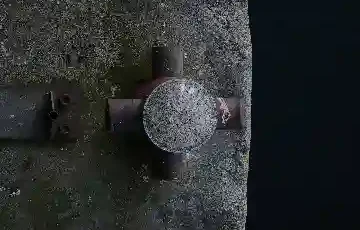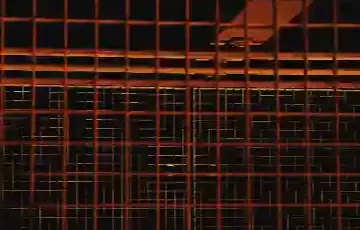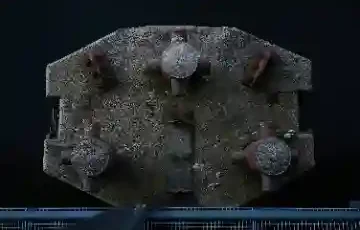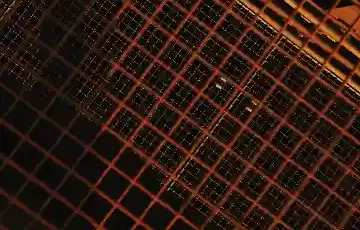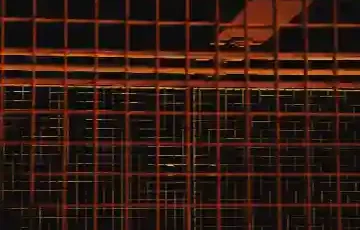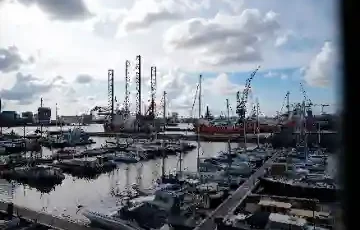An expert witness investigation provides the Dutch court with independent specialized knowledge when technical or professional expertise is required to decide a case. The procedure is regulated under Article 198 and subsequent articles of the Dutch Code of Civil Procedure, whereby the expert conducts impartial research within an assignment set by the court.
District courts regularly engage experts to assess complex issues requiring specialized knowledge. This may involve medical expertise, technical analyses or financial calculations. Expert witness investigations constitute a crucial instrument within the Dutch legal system to support judicial procedures with objective factual information. Courts rely on these independent assessments to ensure well-founded decisions in technically complex matters.
When Does a Court Appoint an Expert Under Dutch Law?
Courts appoint experts when specific professional knowledge is lacking to decide civil cases. Examples include expertise in psychology, IT, construction engineering, medical disciplines or handwriting analysis.
The appointment can occur ex officio or upon request by a party, whereby the judicial organization normally pays compensation for the investigation and travel expenses. Article 198 Dutch Code of Civil Procedure establishes the legal framework for such appointments.
Parties may jointly propose an expert. Therefore, they often reach agreement on a suitable candidate. However, this does not always succeed, whereupon the court searches for and appoints an expert independently. The expert report serves as independent technical advice to the presiding judge.
In approximately 75% of cases where parties propose an expert, the court accepts this choice. The expert must demonstrate verifiable expertise in the relevant field and cannot have commercial interests involving the parties. Moreover, the expert cannot be an acquaintance of the parties to ensure impartiality and objectivity.
What Constitutes Preliminary Expert Investigation in the Netherlands?
Preliminary expert investigation can occur both prior to and during judicial proceedings. This instrument, regulated under Article 202 and subsequent articles of the Dutch Code of Civil Procedure, enables interested parties to gather facts necessary for assessing, preparing or proving their case.
Before civil proceedings in the Netherlands commence, any interested party may submit such a request. During ongoing Dutch court proceedings, only the parties to the case may make that request. Despite the terminology, the expert’s opinion is neither provisional nor temporary. The results contribute to collecting essential evidence, particularly in cases requiring technical, medical or specialized knowledge. Subsequently, the court uses this information to make an informed decision.
When Does a Court Reject Such Requests Under Dutch Law?
The court generally grants requests for preliminary expert investigation. Three conditions apply: the request must be relevant, sufficiently concrete and concern facts that can be proven through investigation. Rejection grounds are limited. The following represent the primary reasons for rejection.
Insufficient interest: The applicant demonstrates no or insufficient interest in the expert investigation. For instance, when the outcome has no relevant impact on the applicant’s legal position. Courts carefully weigh whether the investigation serves a legitimate legal purpose.
Abuse of authority: The request is used to intimidate the opposing party, impose unnecessary costs or delay proceedings without legitimate purpose. Such requests undermine the objectives of proper judicial proceedings. Therefore, courts scrutinize the underlying motivations behind investigation requests.
Weighty objections: This involves balancing interests. For example, when an injured party has already undergone multiple burdensome medical examinations and the preliminary expert investigation would entail another such examination. The court weighs proportionality and reasonableness accordingly.
In approximately 15% of requests, the court rules that weighty objections exist. Consequently, the court protects parties against disproportionate burden, while simultaneously safeguarding the right to evidence. This balance ensures fair proceedings without excessive hardship.
An entrepreneur from Amsterdam faced a personal injury claim requiring medical assessment. Having undergone three prior examinations, the court rejected an additional expert investigation request based on disproportionate burden, protecting the claimant while preserving evidence rights.
How Does the Appointment Procedure Work in Dutch Law?
Article 203 Dutch Code of Civil Procedure describes the procedure following approval of an expert investigation request. This structured approach ensures transparency and fairness throughout the process.
The procedure encompasses several essential steps that logically follow one another, safeguarding procedural rights while maintaining efficiency.
Declaration of willingness and appointment: You declare to the court that you are willing to conduct expert investigation. Following this declaration, the court issues a ruling appointing you. This may occur upon proposal by parties, yet the court retains final authority over the appointment. Additionally, the court often establishes in consultation with parties which questions the expert must answer.
Execution of investigation: The expert conducts the investigation within the established timeframe and adheres to the code of conduct for judicial experts in civil cases. This code guarantees professional standards. The expert must act impartially and to the best of their knowledge pursuant to Article 198(1) Dutch Code of Civil Procedure. Furthermore, the expert must provide parties the opportunity to make comments and requests during the investigation according to Article 198(2) Dutch Code of Civil Procedure.
Reporting and response: Following the investigation, the expert prepares a draft expert report according to the guideline established by the judiciary. This draft is normally provided to the authorized representatives of parties. Thereafter, parties receive the opportunity to respond within a timeframe determined by the court. The expert processes these comments and requests, whereupon the final expert report is sent to the court in triplicate.
Would you like certainty regarding legal strategy during an expert investigation? Our specialized lawyers in Amsterdam analyze your situation and advise on the optimal approach to protect your interests throughout the procedure.
What Requirements Apply to Expert Investigations Under Dutch Law?
Expert investigations must satisfy strict requirements of impartiality and transparency. Experts have the obligation to treat both parties equally and provide them the opportunity to participate in the investigation.
Article 198(2) Dutch Code of Civil Procedure obliges experts to demonstrate in the written report that parties have received the opportunity to make comments and requests. This fundamental requirement protects procedural rights and ensures balanced proceedings.
Parties need not be heard simultaneously and in each other’s presence. This became clear in the judgment in Fernandes/Oostdam, wherein the Supreme Court ruled that such a requirement finds no support in the procedural rules concerning expert reports. However, utilization of an expert report must comply with the principle of adversarial proceedings.
Must Experts Include Literature References in the Netherlands?
Experts are generally not obligated to substantiate essential scientific positions with literature references. Whether experts fail by omitting references to relevant literature depends on the concrete circumstances of the case.
Courts may attach significance to the fact that experts are preeminently knowledgeable in their field. Particularly when parties had confidence in the experts through their joint proposal for appointment. Nonetheless, experts must present their findings clearly and comprehensibly for the court and parties.
Judgment on this matter can only be reviewed to a limited extent in cassation proceedings. Courts exercise restraint when evaluating expert methodology, provided the investigation meets fundamental fairness standards. This approach balances judicial oversight with expert autonomy in technical matters.
What Occurs When Deficiencies Exist in Dutch Investigations?
The court ultimately assesses whether the experts’ working method has violated any principle. This means the court determines, whether or not following protest by a party, if principles such as adversarial proceedings have been disregarded or the investigation was not conducted impartially.
In such cases, the court may set aside the expert report pursuant to Article 198 Dutch Code of Civil Procedure. This safeguard ensures procedural integrity and protects party rights throughout the investigation process.
Additionally, the court typically provides parties the opportunity to comment on the report after its submission. Consequently, parties receive the chance to raise potential objections. However, violation of procedural rules need not always lead to unusability of the expert report. For instance, not when the court has provided both parties ample opportunity for mutual discussion regarding the report’s content after submission.
Can Courts Pose Additional Questions Under Dutch Law?
Courts can indeed pose additional questions to experts following identified deficiencies to remedy those shortcomings. This possibility offers flexibility within the procedure and prevents unnecessary delay.
Moreover, this ensures the final expert report satisfies established requirements. This remedial mechanism maintains procedural efficiency while addressing substantive concerns about investigation quality.
However, when a party has not been involved in the expert investigation and has not received the opportunity to comment in court on the report, the court readily violates the principle of adversarial proceedings. This follows from jurisprudence of the European Court of Human Rights, wherein effective participation in proceedings stands central. Courts must therefore vigilantly protect opportunities for meaningful party engagement throughout expert investigations.
How Do Legal Safeguards Relate to Practice in the Netherlands?
The principles of proper procedure concern proceedings before the court and do not directly apply to the working methods of court-appointed experts. The European Court ruled that the right to adversarial proceedings guaranteed by Article 6 ECHR only relates to proceedings before a court, not to the expert investigation itself.
Nevertheless, experts cannot disregard the obligations of Article 198 Dutch Code of Civil Procedure. This creates a nuanced framework wherein procedural fairness operates at multiple levels within legal proceedings.
Essential is that parties can adequately participate in proceedings before the court. When parties cannot effectively present their position before the expert submits the report, this may lead to violation of the right to fair proceedings. Particularly when the expert report will in all likelihood be decisive for fact-finding by the court.
What Role Does the Draft Expert Report Play in Dutch Law?
The draft expert report enables parties to respond in advance to the expert’s findings. This intermediate step increases transparency and provides parties control over the process.
The expert processes comments and requests following the draft, whereupon the final report emerges. This iterative approach enhances procedural fairness and investigation quality.
In practice, approximately 60% of draft reports lead to modifications or supplements following party comments. Consequently, the quality and completeness of the final expert report improves substantially. Ultimately, this contributes to careful decision-making by the court. This statistic demonstrates the practical value of draft report procedures in ensuring thorough, accurate expert assessments.
What Are Expert Investigation Costs in the Netherlands?
The judicial organization normally pays compensation for the investigation and travel expenses when the court has engaged an expert or has approved a party’s request. Following completion of work, experts invoice worked hours and expenses to the judicial organization via the designated declaration form.
However, a party may also decide to engage an expert outside court proceedings. In that case, this party pays compensation for the investigation and travel expenses themselves. This option offers flexibility but means costs are borne personally.
Costs for expert investigations vary depending on complexity and scope. Simple investigations start from €2,500, whereas extensive technical or medical analyses range up to €15,000 or more. Additionally, experts charge travel costs and potential laboratory expenses separately. Financial planning for such investigations requires careful consideration of case-specific factors.
Contact our law firm in Amsterdam for personalized legal advice regarding your specific situation. We guide you through the entire procedure and ensure the expert investigation optimally serves your interests.



